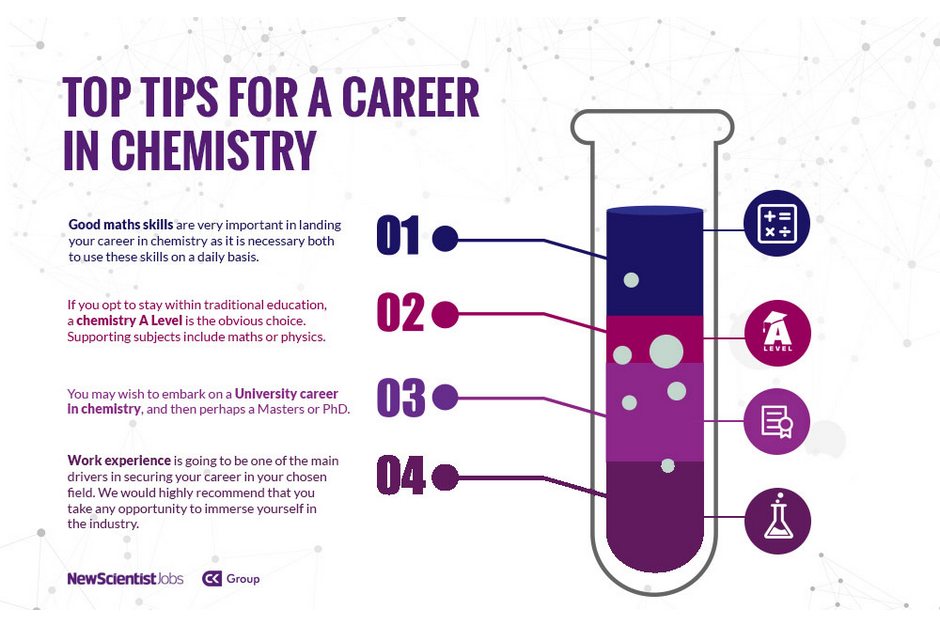As part of our careers advice series with New Scientist Jobs, Victoria Walker who is a specialist in recruitment in the chemical industry has given us her top tips of how to get started in a career in chemistry and to where this could potentially take you. Take a look here:
First you might ask, why would I want a career in chemistry?
The answer is because it provides so many diverse opportunities! Having a career within chemistry is not just limited to working in a lab (although there are many exciting lab-based jobs!). For example you could move into a field service role which would provide travel opportunities; you could get involved with plant based operations including scale up and process chemistry; and you could eventually use your career and knowledge in chemistry to educate, inspire and motivate a new generation.
So if you have a desire to work with polymers, coatings, fragrances, colours and more – follow these tips…
GCSEs or equivalent level qualifications
Most employers look for at least A-C grade (9-4 in new GCSE grading system) in Science and Maths as a minimum. Good maths skills are very important in landing your career in chemistry as it is necessary both to use these skills on a daily basis (such as measuring out chemicals and calculating proportionate yields) as well as having a sound understanding of maths on which to base the chemistry knowledge.
Further study
As people are now required to stay in full-time education until the age of 18 in the UK, options include 6th form or college, or alternatively starting an apprenticeship or trainee-ship.
If you opt to stay within traditional education, a chemistry A Level is the obvious choice. Supporting subjects include maths or physics. Should you wish to start an apprenticeship, try to find an opportunity with a chemical manufacturing company, or one with a company that may provide you with transferable skills.
Depending on the level of knowledge you are looking for and whether you intend to specialise, you may wish to embark on a University career in chemistry, and then perhaps a Masters or PhD. Please note these qualifications are not essential to obtain a career in chemistry; some employers do prefer a chemistry degree however a Masters and/ or PhD education is only for certain niche areas.
Work experience
Aside from having a knowledge and understanding of chemistry, work experience is going to be one of the main drivers in securing your career in your chosen field. We would highly recommend that you take any opportunity to immerse yourself in the industry, whether it’s only shadowing someone for a few days, voluntary lab experience, or paid temporary work/ a year in industry during university. While employers value a good chemistry education, more and more they are turning to experience as being the main tick in the box. Having gained voluntary experience also indicates that you are taking your career in chemistry seriously.
Flexibility
Ultimately, after you have achieved the above, be flexible. There are so many opportunities out there. You may have your heart set on becoming a New Product Development Chemist within water-based adhesives for the packaging industry, however please refer to our previous point – experience is everything. Appreciating that you may need to gain experience in a few other areas before being able to pursue your dream job will firstly take the pressure off, but secondly may mean that you find many other areas within chemistry that you weren’t aware of before.
If you would like more careers advice get in touch with Victoria Walker or take a look at our candidate zone.

